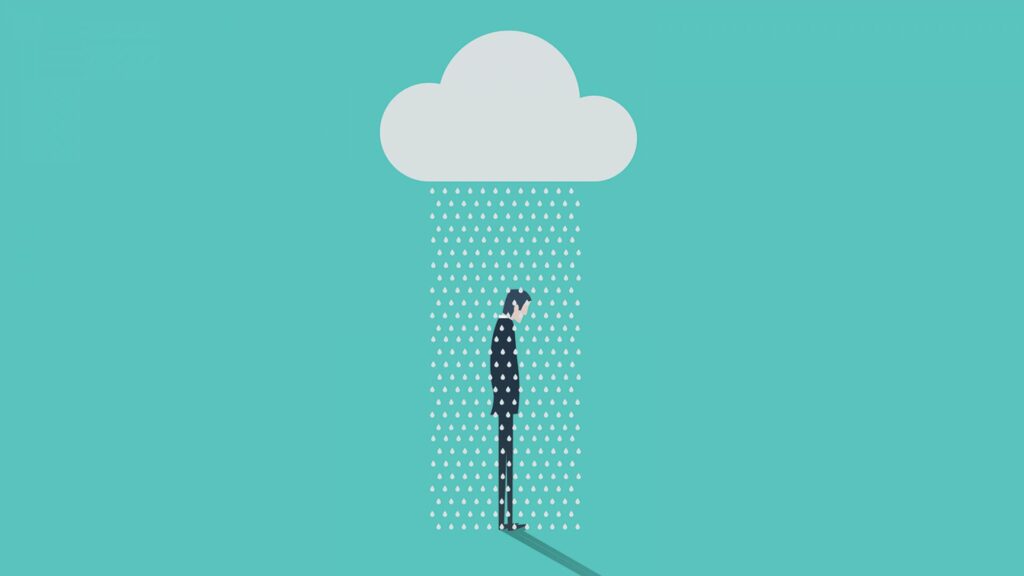Depression is a serious mental health condition that can have a negative impact on many areas of your life. It can be difficult to deal with the side effects of depression on your own, and it’s important to get help if you are struggling. In this blog post, we will discuss some of the surprising side effects of depression. If you are struggling with depression, please seek help from a qualified professional. You don’t have to suffer in silence!
Contents
Defining Depression
 Often misunderstood as a feeling of sadness, depression is much more than that. Depression is a serious mental health condition that can have a negative impact on many areas of your life. It can be difficult to deal with the side effects of depression on your own, and it’s important to get help if you are struggling.
Often misunderstood as a feeling of sadness, depression is much more than that. Depression is a serious mental health condition that can have a negative impact on many areas of your life. It can be difficult to deal with the side effects of depression on your own, and it’s important to get help if you are struggling.
Depression is characterized by a number of symptoms that can vary in severity. These symptoms can include persistent feelings of sadness, anxiety, or empty moods; loss of interest in activities that you used to enjoy; problems with sleep, appetite, and concentration; fatigue or decreased energy; feeling guilty, hopeless, or worthless; and thoughts of death or suicide.
It’s important to remember that everyone experiences these symptoms differently. Some people may only experience a few of these symptoms, while others may experience all of them. Depression is also unique in that it can vary significantly in terms of severity. For some people, depression may be a mild condition that is easily managed with self-care and support from loved ones. For others, depression can be much more severe and may require medication and/or hospitalization.
Side Effects Of Depression
It is no secret that mental illnesses impact not only our mood and behavior but also our overall health and well-being. This may include all of the following aspects.
Physical
Our bodies and mind are interconnected, so it’s no surprise that mental health conditions can have a physical impact on our bodies. Depression has been linked to a number of physical health such as:
- Headaches: People who suffer from migraines are more likely to also experience depression.
- Digestive problems: Depression has been linked to gastrointestinal problems such as irritable bowel syndrome (IBS) and Crohn’s disease.
- Chronic pain: People with depression are more likely to experience chronic pain, such as back pain or headaches.
- Cardiovascular problems: Depression has been linked to an increased risk of heart disease and stroke.
- Fatigue: People with depression often report feeling tired and lacking energy.
- Weight fluctuation: Depression can lead to weight gain or weight loss because of changes in appetite.
- Changes in appetite: Appetite is often affected in people with depression due to the changes in brain chemistry. This means that one may either over-eat or have a loss in appetite.
- Changes in sleep patterns: Sleep is often affected in people with depression. This may include insomnia, which is difficulty falling asleep or staying asleep. It may also include hypersomnia, which is excessive sleeping.
- Sexual dysfunction: Lastly, depression affects one’s sex life. This may include a loss of interest in sex or problems with sexual function.
All these can further lead to severe health conditions such as
- Diabetes
- Hypertension
- Obesity
- Cancer
- Osteoporosis
- Heart attacks
These conditions can be prevented to a great extent by early diagnosis and treatment of depression.
Emotional
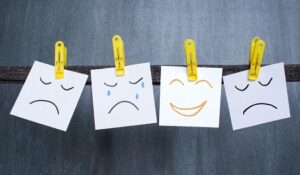 Emotions are closely linked to our mental health. So, it’s no surprise that mental health conditions can have a significant impact on our emotions. Depression can cause a
Emotions are closely linked to our mental health. So, it’s no surprise that mental health conditions can have a significant impact on our emotions. Depression can cause a
- Loss of interest: People with depression often lose interest in activities that they used to enjoy. This may include hobbies, social activities, or work.
- Feelings of sadness: Depression is characterized by persistent feelings of sadness, anxiety, or emptiness.
- Numbness: Numbness is a common symptom of depression. This may include feeling emotionally flat or disconnected from others.
- Hopelessness: People with depression often feel hopeless and helpless. They may feel like there is no way out of their current situation.
- Guilt: People with depression often feel guilty, even when they have done nothing wrong.
- Anxiety: Anxiety is a common symptom of depression. This may include feeling agitated, restless, or tense.
- Anger: People with depression may experience sudden outbursts of anger. They may also have a hard time controlling their anger.
- Overthinking: People with depression often have a hard time focusing or thinking clearly. They may ruminate on negative thoughts or become easily distracted.
- Mood swings: People with depression may experience mood swings. This means that their mood can change suddenly and without warning.
- Suicidal thoughts or attempts: In severe cases, depression can lead to suicidal thoughts or attempts. This can happen because the person feels like they cannot escape the pain they are in. If you or someone you know is experiencing suicidal thoughts, it is important to get immediate help.
These are the emotional impacts of depression. Since emotions play such a big role in our mental health, it’s important to understand how they can be affected by mental health conditions.
Cognition
Cognition is described as the mental process and activity used to acquire knowledge and understanding. When one has depression, their cognition may be impacted in the following ways:
- Indecisiveness: People with depression often have a hard time making decisions. This may be because they are overthinking or because they feel like they have no control over their life.
- Memory problems: People with depression may have trouble concentrating or remembering things. This can impact their work, school, or personal life.
- Poor judgment: Depression can lead to poor judgment. This may be because the person is not thinking clearly or because they are making impulsive decisions.
- Inattention: People with depression may have a hard time paying attention. This may be because they are easily distracted or because their thoughts are constantly racing.
- Problem-solving ability: Depression can impact a person’s ability to solve problems. This may be because the person is not thinking clearly or because they are feeling overwhelmed.
- Creativity: Lastly, depression may impact a person’s creativity. This may be because the person is not able to focus or because they are feeling creatively blocked.
All these lacks and difficulties in thinking, decision-making, and focus can lead to problems in a person’s personal and professional life.
Psychological
Depression not only takes a toll on our physical health but also our psychological health. Depression has been linked to a number of mental health conditions, such as:
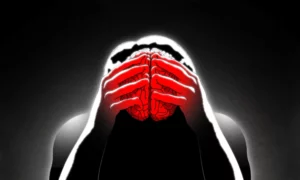
- Anxiety disorders: Anxiety disorders are the most common type of mental health disorder. People with anxiety often have intrusive thoughts, feel restless or tense, and avoid situations that make them anxious.
- Anger issues: Depression and anger often go hand-in-hand. People with depression may have a hard time controlling their anger.
- Obsessive-compulsive disorder (OCD): OCD is a type of anxiety disorder characterized by intrusive thoughts and repetitive behaviors. People with OCD often have obsessive thoughts about cleanliness, symmetry, or order. People in depression may act compulsively in an attempt to control their environment.
- Post-traumatic stress disorder (PTSD): PTSD is a type of anxiety disorder that can occur after a person experiences or witnesses a traumatic event. People with PTSD often have flashbacks, nightmares, and intrusive thoughts about the event. Often, depression and PTSD go hand-in-hand.
- Dissociative disorders: Dissociative disorders are a type of mental health disorder characterized by dissociation. Dissociation is when a person feels disconnected from their thoughts, feelings, or identity. People with dissociative disorders often have trouble functioning in their everyday life.
- Substance abuse disorders: Substance abuse disorders are a type of mental health disorder characterized by the abuse of drugs or alcohol. People with substance abuse disorders often have trouble controlling their use of substances. They may continue to use substances even though it is causing problems in their life.
- Body dysmorphic disorder (BDD): BDD is a type of mental health disorder characterized by an obsession with one’s appearance. People with BDD often have distorted perceptions of their bodies and may spend a lot of time thinking about or trying to improve their appearance.
- Personality disorders: Lastly, personality disorders are a type of mental health disorder characterized by rigid personality traits. People with personality disorders often have difficulty relating to others and may be seen as inauthentic or manipulative. Depression can lead to such disorders due to the psychological toll it takes.
These disorders have a profound effect on a person’s mental health. If you or someone you know is struggling with depression, it is important to seek help from a mental health professional.
Social life
Human beings are social animals. This means that we need social interaction and connection in order to thrive. Unfortunately, depression can have a negative impact on our social lives in the following ways:
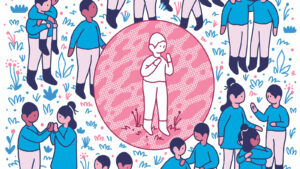
- Isolation: Because depressed people do not have the energy or motivation to socialize, they may start to isolate themselves. This can lead to further depression and loneliness.
- Withdrawal from activities: Depression may cause people to withdraw from activities that they once enjoyed. This can lead to a loss of interest in hobbies and interests.
- Avoidance of social situations: Avoidance differs from withdrawal in that avoidance is an active decision to not participate in social situations. People with depression may avoid social situations because they are anxious or because they do not want to be a burden on others.
- Loss of friends: Depression can lead to the loss of friends. This is because people with depression may isolate themselves, withdraw from activities, or avoid social situations. Additionally, people with depression may be difficult to be around due to their negative mood.
- Relationship problems: Depression can also lead to relationship problems. This is because people with depression may withdraw from their partner, be less interested in sex, or have difficulty communicating. Additionally, people with depression may be more likely to be irritable or have outbursts of anger.
These are all of the ways wherein depression can lead to social problems. As you can see, depression can have a negative impact on our social lives in a number of ways.
Productivity
Depression and productivity are often thought of as being mutually exclusive. However, depression can actually have a significant impact on our ability to be productive. Depression can impact productivity in the following ways:
- Absenteeism: Absenteeism is when people miss work due to illness. Depression is an illness, and so people who are in depression may miss working more often than those who are not.
- Presenteeism: Presenteeism is when people come to work but are not able to be productive due to illness. This is because of the fact that depression can make it difficult to concentrate, remember things, or make decisions.
- Performance: Depression can also impact work performance. This is because people who are depressed may have trouble concentrating, making decisions, or remembering things. Additionally, people with depression may be more likely to make mistakes or have accidents.
- Procrastination: Procrastination is when people put off doing tasks that they need to do. People with depression may procrastinate more often than those who are not.
These are the ways in which depression can impact productivity. As you can see, depression can have a significant negative impact on our ability to be productive.
These are all of the side effects of depression. Depression is a serious mental health condition that can have a negative impact on many areas of your life. If you are struggling with depression, please seek help from a qualified professional. You don’t have to suffer in silence!
How To Manage Them?
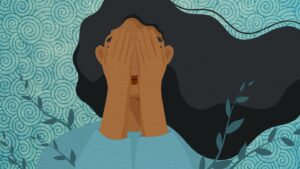 Now that we are aware of the side effects of depression and their potential to cause problems in our lives, it is important to learn how to manage them.
Now that we are aware of the side effects of depression and their potential to cause problems in our lives, it is important to learn how to manage them.
The first step is to seek help from a qualified professional. This is the most important step because they will be able to assess your symptoms and recommend the best course of treatment.
Mental health professionals typically use therapy, medication, or a combination of both to treat depression.
Therapy can be very helpful in managing the symptoms of depression. There are many different types of therapy, so it is important to find one that is right for you. Medication can also be helpful in managing the symptoms of depression. They work by changing the levels of chemicals in the brain. It is important to speak with a mental health professional before starting any medication. A combination of therapy and medication can be the most effective treatment for depression. This is because they work together to address the different aspects of the condition.
Additionally, there are also some lifestyle changes that can be helpful in managing the symptoms of depression. These include:
- Exercise: Exercise has been shown to be an effective treatment for depression. It can help to improve mood, increase energy levels, and reduce stress.
- Sleep: Getting enough sleep is important for managing the symptoms of depression. Depression can cause insomnia, so it is important to get enough sleep.
- Diet: Eating a healthy diet can also help to manage the symptoms of depression. This is because certain foods can impact mood.
- Stress management: Managing stress can be helpful in managing the symptoms of depression. This can be happen through relaxation techniques, exercise, and journaling.
These are some of the ways in which you can manage the symptoms of depression. If you are struggling with depression, please seek help from a qualified professional. You don’t have to suffer in silence!
Conclusion
In conclusion of the above, we can say that depression has various side effects. Some of these side effects can be very problematic and can impact our ability to live a normal life. However, there are ways to manage the symptoms of depression. If you are struggling with depression, please seek help from a qualified professional. Help is available and you don’t have to suffer alone.
If you or someone you know is looking for psychological help, Therapy Mantra is here for you. We are the leading providers of online therapy and counseling. Our team of highly trained and experienced therapists can provide assistance at the most affordable rates. Contact us today to learn more about our services. You may also visit our website to book an online therapy session or download our free Android or iOS app for more information.
